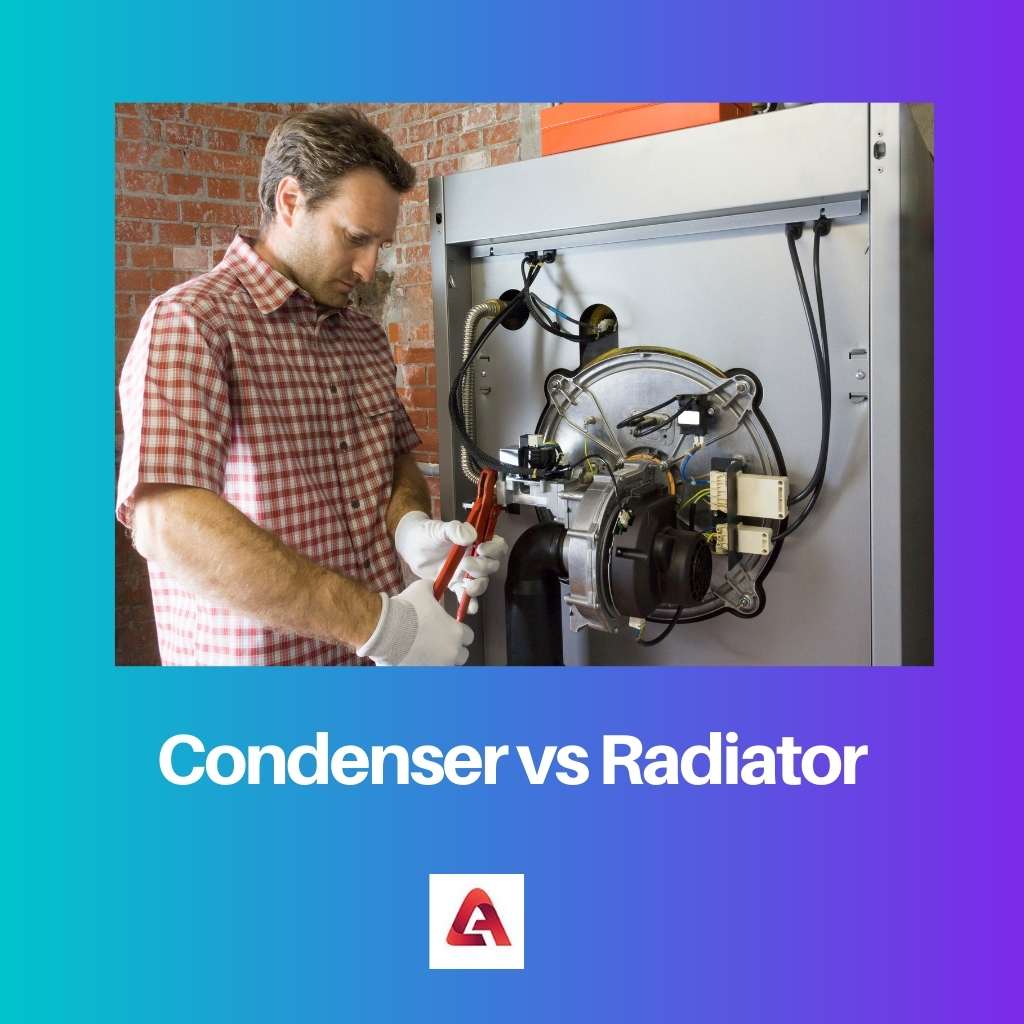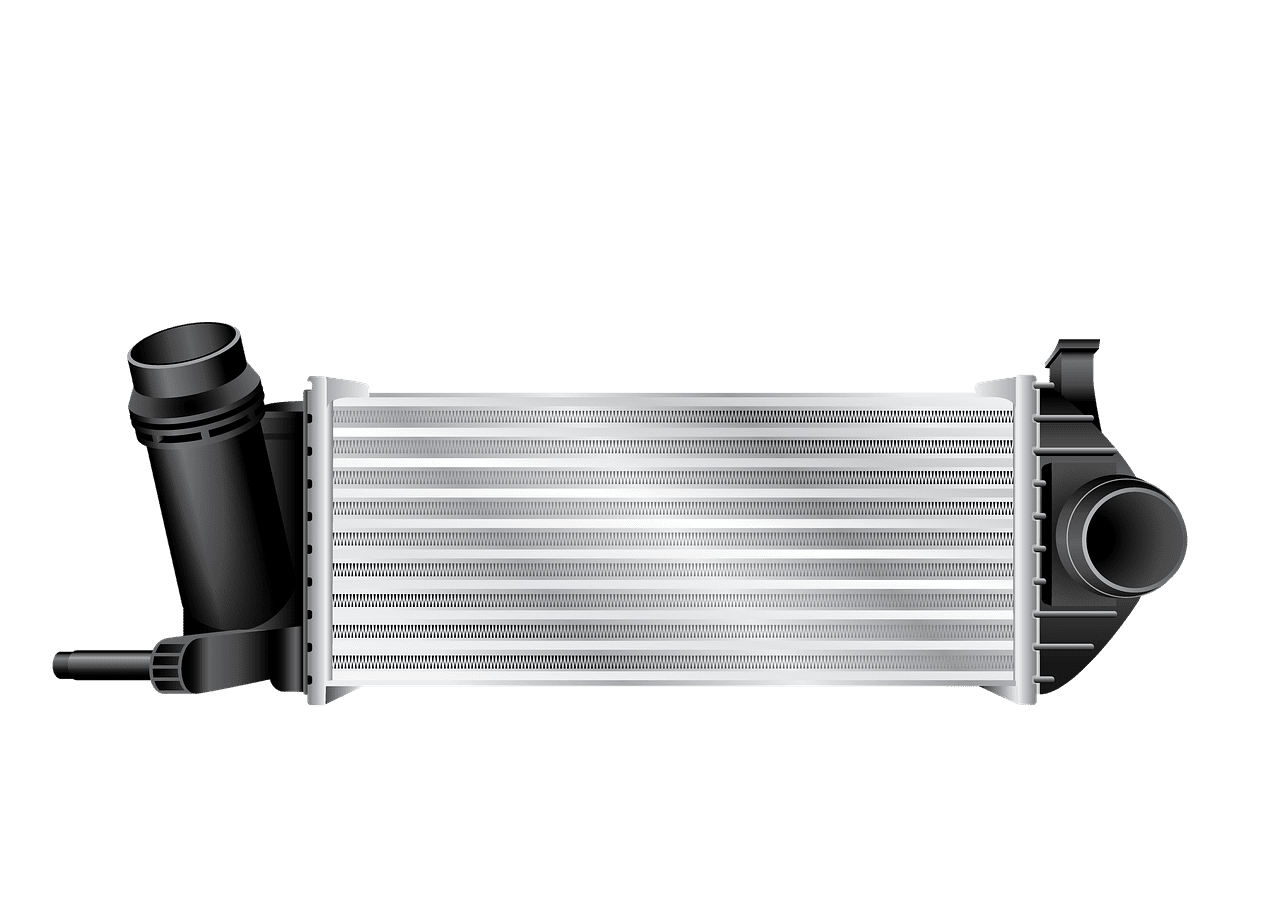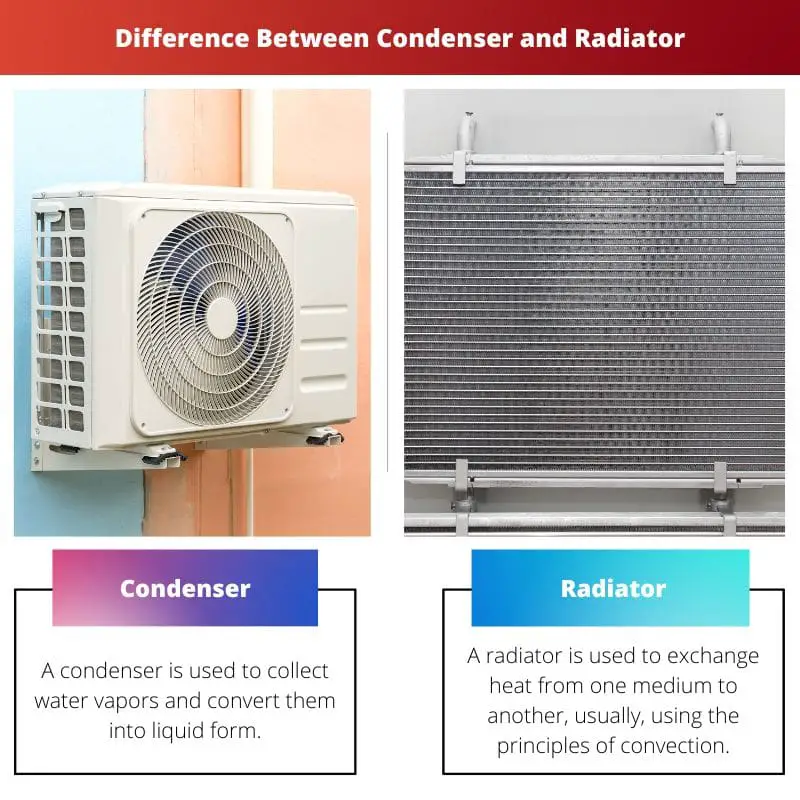People across the world remain confused in regards to the meaning of the terms condenser and radiator. They think of these terms to be synonymous as they are simply not aware of the various differences that both these terms possess.
Their wide industrial use, especially in the automobile industry, adds to the confusion of the people and they think of both condensers and radiators to be similar to each other. However, both these are different equipment and have different functions.
Key Takeaways
- Air conditioning systems use condensers to release heat, while engines use radiators to cool them down.
- Condensers convert refrigerant gas into a liquid state, whereas radiators dissipate heat from engine coolant.
- Both condensers and radiators rely on air flow for heat exchange, but they serve different purposes in a vehicle.
Condenser vs Radiator
The condenser is the outdoor portion of an A/C or heat pump that either releases heat from the system to the atmosphere or collects it. The radiator is a heat-exchanger used to cool internal combustion engines by eliminating heat from the hot engine coolant passing through it, to the atmosphere.

A condenser is widely used in industries both as a piece of equipment and as a raw material. It is used for a variety of purposes and exists in different forms such as the barometric condenser, surface condenser, indirect condensers, etc.
A condenser is also used in the refrigeration industry and acts as a hot terminal. This terminal is accessed for heat, which is available at low temperatures.
The radiators are commonly used as heat exchangers and they help in transferring heat from one medium to another.
In European countries and all other nations, which experience long phases of cold temperature, a radiator is used to keep the structure or building warm. In a heating system, which is radiator-based, a central unit boils water.
This heated water is circulated with the help of pumps via the radiator, which transfers the heat contained in boiling water to its surroundings.
Comparison Table
| Parameters of Comparison | Condenser | Radiator |
|---|---|---|
| Meaning | A condenser is used to collect water vapors and convert them into liquid form. | A radiator is used to exchange heat from one medium to another, usually, using the principles of convection. |
| Industry | A condenser is primarily used in the refrigeration industry, wherein it acts as the hot terminal or end. | A radiator is used in central heating systems, which is used to keep the surroundings and places warm, by exchanging the heat contained in the boiling water. |
| Uses In Cars | A condenser is located in front of the cars and it reduces the temperature of the refrigerant, which is increased by the compressor. | A radiator is located inside the engine of a car and acts as a cooling agent for the engine. It eliminates the excess heat generated by the engine and is a part of the cooling system. |
| Corrosion | Condensers can get corroded as they are constantly exposed to moisture. | Radiators get corroded because of the air, which enters into the engine after it cools down. This air strikes the radiator and corrodes or rusts its surface. |
| Life span | The common life span of a condenser is around 15 to 20 years. | The general life span of a radiator is around 8 to 10 years. |
What is Condenser?
A condenser is commonly used in several refrigeration industries and cars. It acts as a heat exchanger and is used to convert the water vapors into liquids.
In this process, a condenser reduces the temperature of water vapor using any other liquid having a lower temperature. A Thermodynamic contact is established, and the temperature of the water vapor falls.
Condensers treat the superheated state of the liquid, which enters into it and cools it down. It is common for the condensers to experience corrosion and get rusted.
However, such corrosion can be prevented, if these condensers are applied a coating of a thermal barrier.

What is Radiator?
A radiator uses the principles of convection and is used to transfer heat from one source to another.
In western countries, which experience long phases of cold weather, when mercury remains on the lower side for long intervals of time, a radiator-based heating system is used to keep the building hot.
In such a setting, there is always the presence of a central boiler, which constantly boils water. A radiator utilizes the heat energy of this boiling water and exchanges it to its surroundings.
On the other hand, when used in the engine of a car, a radiator acts as a cooling agent. It eliminates all the excess heat, which is generated inside an engine.

Main Differences Between Condenser and Radiator
- A condenser is used in the refrigeration industry whereas a radiator is used in the heating industry. However, both of them are used in cars, albeit having different functions.
- A condenser converts water vapors (steam) into liquids, whereas, a radiator is used to exchange heat with its surroundings.
- A condenser reduces the temperature of the water vapors, which enter into it in a superheated form, whereas, a radiator utilizes the heat energy contained in the boiling water and transfers it to the buildings.
- A condenser corrodes due to moisture, whereas a radiator corrodes due to the air entering into the engine when it gets cool.
- A condenser has a longer life span than a radiator. It can easily run for at least 15 to 20 years, whereas a radiator remains functional for only 8 to 10 years.

- https://www.sae.org/publications/technical-papers/content/2001-01-1018/
- https://www.sciencedirect.com/science/article/pii/S1359431121002969
